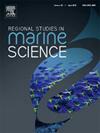Evaluating the environmental impacts of land use change in the conservation area of Indonesian National Park using life cycle assessment
IF 2.1
4区 环境科学与生态学
Q3 ECOLOGY
引用次数: 0
Abstract
The Karimunjawa National Park (KNP) conservation area is facing the challenge of evolving land use change, which can potentially cause substantial environmental impact. This study examines the potential environmental impact of emissions from land use change on three major Island using methods released by the European Commission in 2010, as well as the potential environmental impact in nine stations using OpenLCA 2.0 software with the Ecoinvent 3.8 database. Impact assessment method utilized CML-IA baseline and EPS 2015d. The results of this study indicate significant emissions of greenhouse gases (GHGs) linked to land-use changes. Karimunjawa and Kemujan Island exhibit the highest emissions, at 32,424.07 t. Offsetting these emissions would necessitate mangrove planting encompassing 4.01 ha. Nyamuk and Parang Islands follow with emissions of 19,269.98 t and 18,473.92 t, requiring 2.38 ha and 2.28 ha of mangrove restoration for net zero emissions, respectively. The study also reveals environmental impacts and their main contributors, namely Eutrophication is 3.98E-6 kg --- eq and the main kontributor is Phosphorus (P); Marine ecotoxicity is 2.14E+01 kg 1.4-DB eq and the main cause is Cobalt (Co) at Menjangan Besar Island (C1 Station). The highest environmental impact is on Kemujan Island (B1 Station) and Menjangan Besar Island (C1 Station). Then, species extinction is 1.19E-21 NEX and the primary kontributor is Biological Oxygen Demand (BOD5) at Kemujan Island (B1 Station). It is imperative to halt the conversion of mangrove land into fishponds in KNP to mitigate the effects of environmental damage.
利用生命周期评估评价印度尼西亚国家公园保护区土地利用变化对环境的影响
卡里蒙查瓦国家公园(KNP)保护区正面临着土地利用不断变化的挑战,这可能会对环境造成巨大影响。本研究采用欧盟委员会 2010 年发布的方法,对三个主要岛屿的土地利用变化所产生的潜在环境影响进行了研究,并使用 OpenLCA 2.0 软件和 Ecoinvent 3.8 数据库对九个站点的潜在环境影响进行了研究。影响评估方法采用了 CML-IA 基线和 EPS 2015d。研究结果表明,温室气体(GHGs)的大量排放与土地利用变化有关。Karimunjawa 岛和 Kemujan 岛的排放量最高,达 32,424.07 吨 CO2。要抵消这些排放量,就必须种植面积达 4.01 公顷的红树林。其次是尼亚穆克岛和帕朗岛,排放量分别为 19,269.98 吨 CO2 和 18,473.92 吨 CO2,需要分别种植 2.38 公顷和 2.28 公顷红树林才能实现净零排放。研究还揭示了环境影响及其主要成因,即富营养化为 3.98E-6 kg PO4----当量,主要成因是磷(P);海洋生态毒性为 2.14E+01 kg 1.4-DB eq,主要成因是 Menjangan Besar 岛(C1 站)的钴(Co)。对环境影响最大的是 Kemujan 岛(B1 站)和 Menjangan Besar 岛(C1 站)。物种灭绝率为 1.19E-21 NEX,主要原因是 Kemujan 岛(B1 站)的生物需氧量 (BOD5)。当务之急是停止将 KNP 的红树林土地转化为鱼塘,以减轻环境破坏的影响。
本文章由计算机程序翻译,如有差异,请以英文原文为准。
求助全文
约1分钟内获得全文
求助全文
来源期刊

Regional Studies in Marine Science
Agricultural and Biological Sciences-Ecology, Evolution, Behavior and Systematics
CiteScore
3.90
自引率
4.80%
发文量
336
审稿时长
69 days
期刊介绍:
REGIONAL STUDIES IN MARINE SCIENCE will publish scientifically sound papers on regional aspects of maritime and marine resources in estuaries, coastal zones, continental shelf, the seas and oceans.
 求助内容:
求助内容: 应助结果提醒方式:
应助结果提醒方式:


